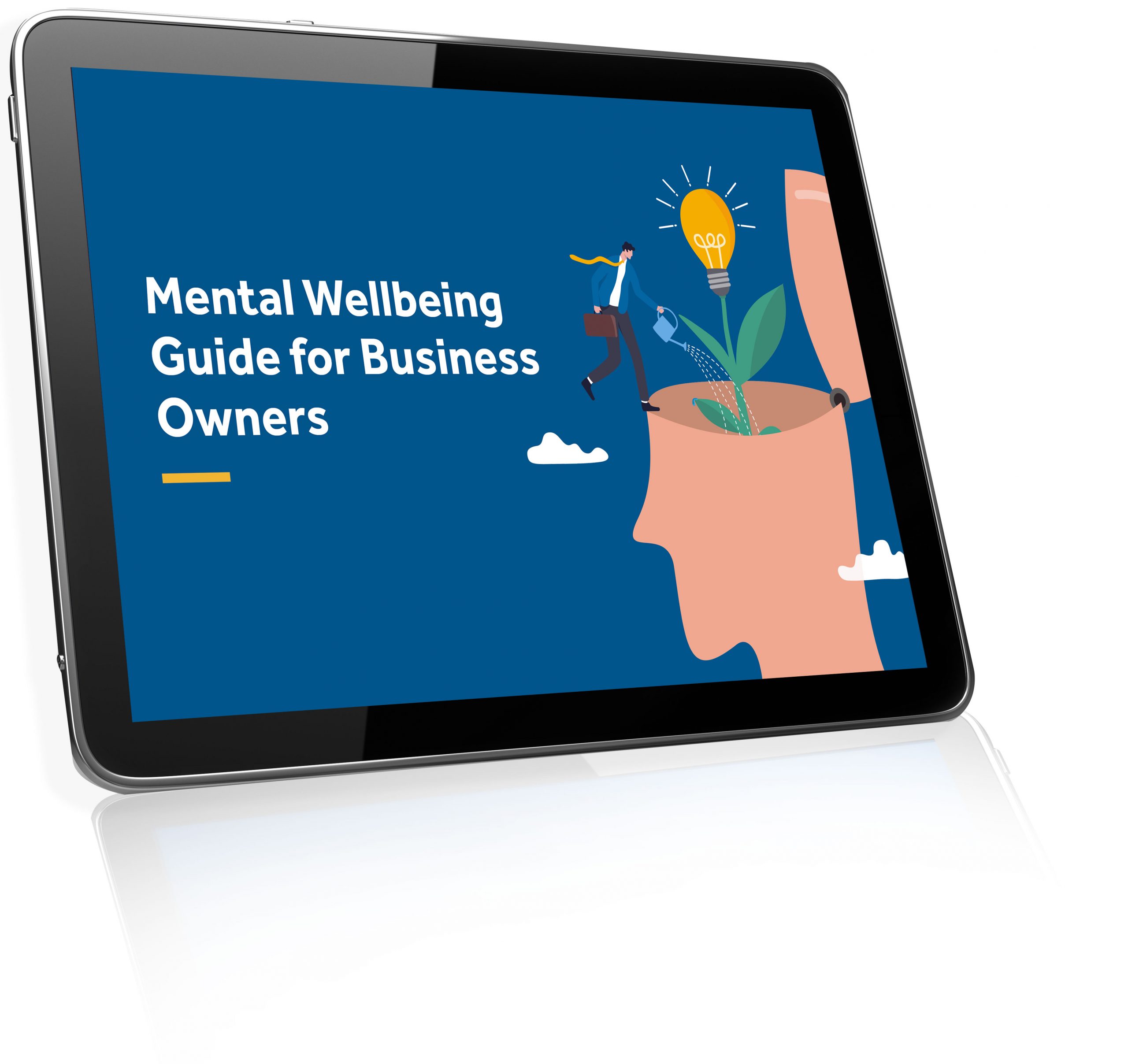
A National Study of Mental Health and Wellbeing in 2022 found that 43.7% of Australians between the age of 16 and 85 had suffered from a mental disorder at some point in their life. The cost of all this poor mental health is money lost due to lower productivity, absenteeism, and support payments. Given that we spend 1/3 of our day at work, a bad work culture, employers or toxic workplace can impact significantly on the mental health and wellbeing of your employees. One of the easiest ways employers can improve mental health outcomes is to raise awareness and reduce stigma around mental health in their workplaces.
Why Is Promoting Mental Health Important In The Workplace?
1. Awareness Reduces Mental Health Stigmatization
Mental health has traditionally been discussed in negative terms and connotations. That is, someone who has depression, anxiety, stress or emotional issues has a stigma attached to them. This stigma can lead to those suffering from mental health issues having their concerns not acknowledged or even dismissed.
As an employer, encouraging awareness of mental health issues can assist any employee who may be suffering from mental health illnesses. Encouraging awareness of mental health can be as simple as communicating to your staff that you acknowledge the existence and commonality of mental health issues and will listen to any staff who would like to discuss their mental wellbeing in the workplace.
2. It Improves Employee Productivity and Team Performance
When someone exercises and follows a good diet, they will naturally feel more energised and will likely be more productive at work. Similarly, an employee who is mentally healthy will likely be more productive at work.
Poor mental health or poor employee wellbeing may also affect employee performance, decision making, workflow, and relationships at work, seriously impacting their work life. A lack of mental wellbeing may also contribute to absenteeism.
3. It Helps Employees to be Proactive with Their Mental Health
Promoting mental health awareness can encourage your employees to be more proactive in dealing with their mental health. This includes helping them to recognise and acknowledge the signs of low mental health, which will assist them to take actions or seek help to improve their mental health.

What Is Mental Health?
Mental health is the general emotional and cognitive wellbeing of a person; how they think, feel, behave and interact with others.
Mental health problems or illnesses can range from a temporary concern to an ongoing condition; often, people may not react well to the ongoing stresses of life.
On the other hand, some employees may be suffering from an ongoing mental illness or be more perceptible to poor mental health.
Mental health problems, illnesses and outcomes should be considered in the same way physical health problems, illnesses and outcomes are considered. For example, if an employee works in the sun without protection, then they are more likely to get sunburnt (problem) and this may lead to skin cancer (illness). If an employee witnesses a workplace accident, they may – obviously – be emotionally affected; if left untreated, their experience may affect their long-term mental health.
The statistic mentioned at the beginning of this article alone indicates that far from being rare, mental health illnesses are quite common. It naturally follows that employers should place mental health towards the top of their workplace health and safety concerns.
Positive Mental Health Benefits
Companies and employers have used mental health as a buzzword. However, it is vital that we encourage employees to understand mental health effectively. October is National Mental Health Month and this is an excellent opportunity to engage in promoting positive mental health among your employees. Employees with a positive state of mind or good mental health fare better in their professional and personal lives. They are engaged, motivated, productive, and function effectively in society.
Having a mental health friendly workplace also benefits employers as the workplace culture becomes positive and supportive.
How Do You Promote Mental Health Awareness?
Here are a few tips for promoting mental health in the workplace.
1. Don’t Treat Mental Health as a Taboo Topic
Research has shown that talking openly about mental health can benefit your employees. Speak openly about the topic with your employees. If you want, and if you have one, you can also tell your story with your employees.
2. Add Signs and Resources Around the Workplace
Something as simple as posting signs and providing resources (such as brochures, phone numbers for services, etc) about mental health, and how your business is willing to support employees can make a vast improvement.
3. Be Attentive and Be There When Needed
In the event of an employee acting out of character, don’t be quick to make assumptions. Always find time to talk to them, find out what is impacting their current behaviours at work and ask them if they need any support from you or the team. If you have an Employee Assistance Program, you could suggest they access it, or alternatively talk to their GP.
4. Train Staff
One of the great ways to promote mental health awareness is to get training. Train your team and staff about mental health. For instance, you could set up training with your managers to help them better identify and deal with mental health issues in your team.
5. Provide a Mental Health Policy
A solid, comprehensive and responsive mental health policy is an essential document in identifying mental health risks, properly supporting those who may be suffering and protecting your business with the right documentation.
Lifeline: 13 11 14
What Activities Can Be Done for Mental Health Benefits?
Exercise
During and after exercise, the body releases calming neurotransmitters that improve general wellbeing. Getting your body moving before work can help you cope well with situations that may cause stress or anxiety. Organise team workouts or hold yoga workshops for your employees to get them moving.
Encourage micro-breaks
You can ensure your employees take regular micro-breaks. Micro-breaks are small breaks taken through the day. This can be done by getting up from your desk or work area and walking around. Some offices have initiatives such as lunches away from desks to make employees feel refreshed. You can also opt for having meeting-free days so your team can focus on their tasks completely.
Set boundaries
Lead the way for your staff by setting firm boundaries. Fix a specific time to start and end a work day for your employees. Communicate your expectations clearly across the team.
National Mental Health Month
October is National Mental Health Month. This is an important time for the Australian community to come together and raise awareness of mental health.
It is an initiative by Mental Health Foundation Australia that seeks to educate Australians on issues concerning mental health, thereby eliminating stigma and encouraging a non-judgemental and positive discussion on the topic.

Mental Wellbeing Guide for Business Owners
Being a business owner can be overwhelming! There’s a lot to be across, from managing day-to-day operations, paying wages, dealing with rising business costs, hiring and managing staff, and ensuring you have the right processes and documents in place. These challenges can have a real impact on your mental wellbeing. While you’re looking out for the wellbeing of your staff, who’s looking out for yours?
Download our FREE Mental Wellbeing Guide for Business Owners today!

About Employsure.
Employsure is one of Australia’s largest workplace relations specialists.
We take the complexity out of workplace laws to help small business employers protect their business and their people.
Frequently Asked Questions
Why Is It Important To Raise Awareness About Depression?
It is important to raise awareness about depression as it can help remove the stigma surrounding the illness. Removing the stigma may lead to improved mental health outcomes: for example, your employees may become more proactive in dealing with any symptoms of depression.
What month is Mental Health Awareness Month in Australia?
October is Mental Health Awareness Month in Australia. National Safe Work Month also takes place in October, a timely reminder that employers must also strongly consider the importance of workplace mental health.
How Can I Raise Awareness for Mental Health in The Workplace?
You can raise awareness of mental health in a few ways. For instance, you can provide a mental health policy, educate and train your staff on the topic; and provide signs and resources that encourage your employees to keep abreast of their own mental wellbeing.
